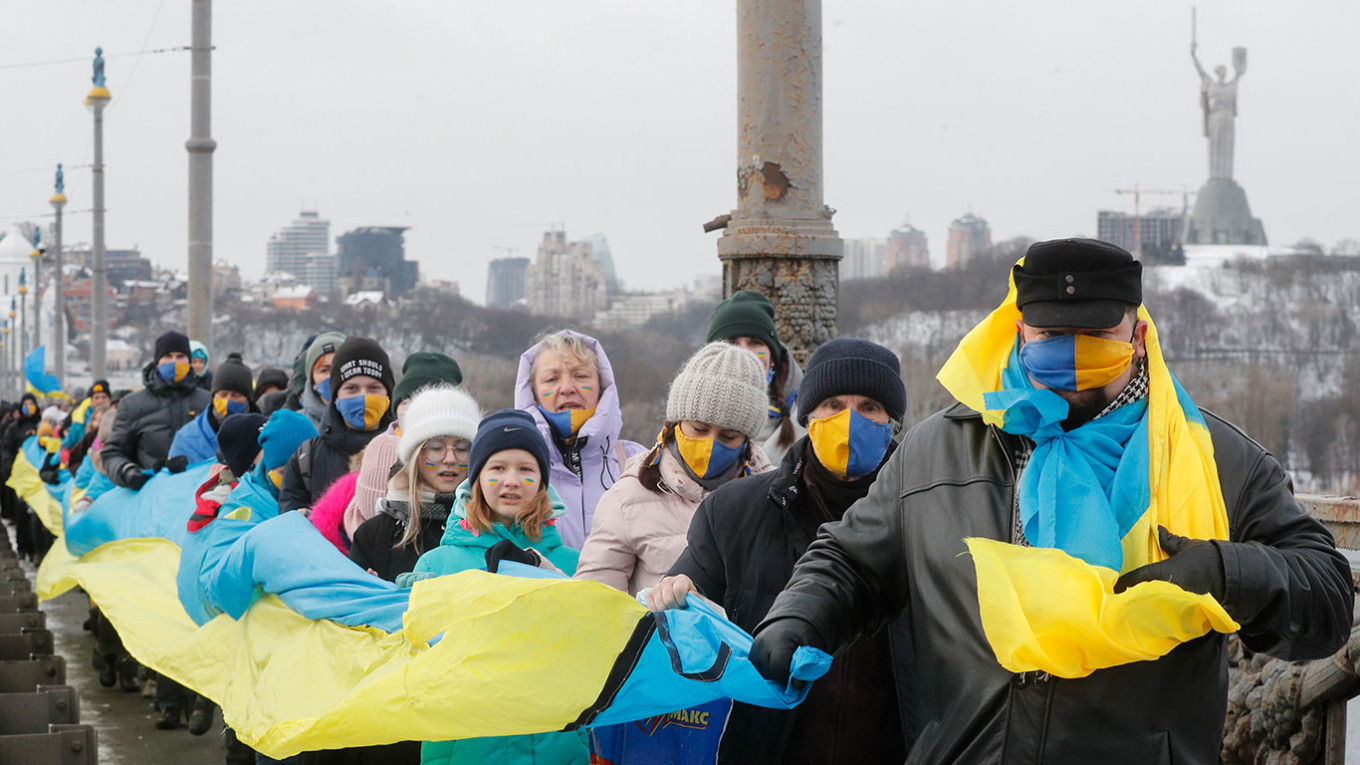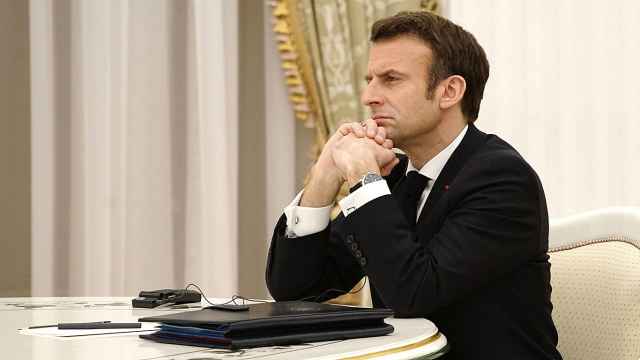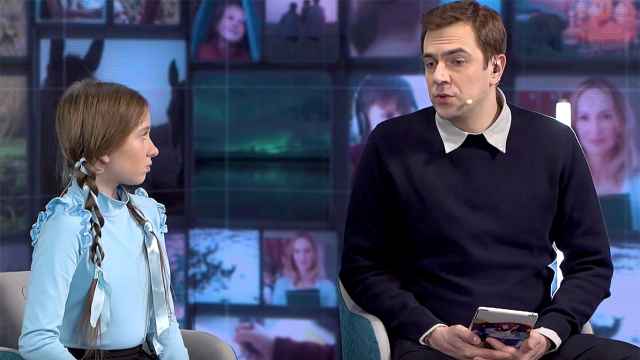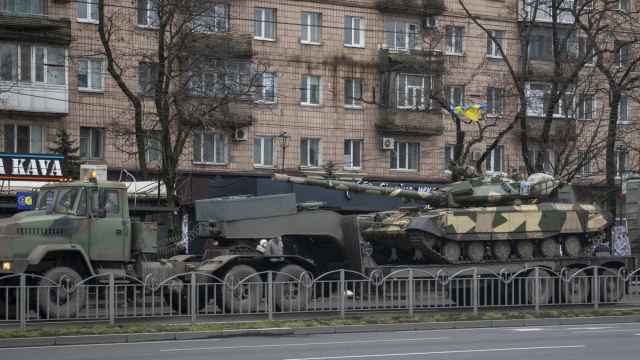Just when the current Ukraine crisis looked as if it could hardly get more confused and confusing, the British Foreign Office (FCDO) has just released a frustratingly brief press release claiming that it has ‘"information" that "the Russian Government is looking to install a pro-Russian leader in Kyiv as it considers whether to invade and occupy Ukraine."
Coming on the heels of a U.S. announcement of sanctions on four Ukrainians "engaged in Russian government-directed influence activities to destabilize Ukraine" with an eye to "creating a new, Russian-controlled government in Ukraine," this would sound like clear evidence of Moscow’s plans. And yet, things are never quite that straightforward.
How many plots?
First of all, it is worth noting that the American and British allegations, while similar in nature, are strikingly different in detail. Only one individual appears on both lists: Vladimir Sivkovich, the former Deputy Head of the Ukrainian National Security & Defence Council, currently in exile in Russia.
Considering the breadth and depth of U.K. and U.S. intelligence sharing and policy coordination, it seems strange that they manage to come up with similar sounding plots but different casts. We may be used to American TV picking up and re-shooting British series from The Office to House of Cards, but geopolitics ought to be a little more consistent.
Secondly, the details of those casts are unusual. The FCDO claims that former Ukrainian MP Yevhen Murayev "is being considered as a potential candidate" as puppet leader, although it makes no comment as to whether he is aware of this, or at all interested.
He himself has dismissed the idea as "stupidity and nonsense."
He is not exactly a household name in Ukraine: a poll in December by the Razumkov Centre saw him ranked seventh among potential candidates for the presidency with 6.3% support. More to the point, he is actually under Russian sanctions and reportedly opposed to Viktor Medvedchuk, generally considered Vladimir Putin’s closest ally in Ukraine.
Finally, amidst all this talk of coups — which includes President Zelenskiy’s rather strange claims back in November that oligarch Rinat Akhmetov was being wooed by Moscow to support a coup in December, and which did not even lead to a criminal investigation — the allegations are usually of ‘links’ and ‘contacts’ with Russian intelligence officers and assets.
Whose plots?
The Russians — like everyone else — plan for all kinds of contingencies. They don’t know what will happen next.
They don’t know what the Kremlin will demand next. So, they operate on multiple axes such that they can react to changes. Part of that must mean cultivating contacts — sometimes overtly, but often through cut-outs and behind fake personae — with all kinds of people who might be of value in Ukraine.
They might be useful mouthpieces, or may have information of interest, or can simply arrange an introduction with someone who is of even greater significance. This is the daily work of intelligence.
Moscow also has a particular approach which tends to put competition and multiplicity over coordination. The Kremlin has encouraged a carnivorously competitive intelligence environment in which the Foreign Intelligence Service (SVR), military intelligence (technically now the GU, even if still widely known as the GRU) and even the Federal Security Service (FSB) operate separately, often even at cross-purposes.
Furthermore, it continues to encourage all kinds of other ‘geopolitical entrepreneurs’ to play. Oligarchs and minigarchs, scholars and pundits, numerous other players exploit their own contacts and pursue their own agendas.
These can often be considered speculative ventures: if successful, they may be picked up by the Kremlin and their initiators rewarded. If unsuccessful, the Kremlin has lost nothing and can deny any knowledge or responsibility.
In that context, there will be all kinds of contacts and conversations, wild ideas being generated and cockeyed plans being pitched to the Kremlin. The real difficulty is in trying to distinguish which of these, if any, has some kind of official sanction.
Plots, schplots
This is not simply an analytic challenge, though it is certainly that. It is also a political one. The temptation for Western governments may be to treat the most politically-useful — which are often the more apocalyptic — as most credible. Or at least affect to do so, in the name of justifying their policies and encouraging Western consensus.
However, in an age of ubiquitous disinformation and misinformation, propaganda and ‘strategic communications,’ it is no longer enough for governments simply to cite or hint at having intelligence in support of their claims and assume that is enough to convince.
Of course, governments need to protect their intelligence agencies sources and methods, but if they think something is worth publicizing in a press release, then they should also think it is important enough to be prepared to provide some kind of explanatory and confirmatory material.
After all, allegations that Moscow is actively preparing to install a puppet regime in Kyiv strongly implies that it plans the massively ambitious — and likely unmanageable — task of occupying all or most of Ukraine. Considering not just the size and capacity of Ukraine’s armed forces, but also the clear will to resist in most of the country, that would be a pacification campaign which it is hard to see the Kremlin trying, let alone achieving.
Plots that undermine themselves
In other words, this is not just about a handful of Ukrainian officials. Such claims seek implicitly to set the tone for the whole Western understanding of what Russia is doing in and with Ukraine, and doing so in a way which even runs counter to what Kyiv appears to believe.
Maybe it is entirely true, of course. But if so, one could hope for greater candour and also coordination.
It is not just that London and Washington seem not to have got their stories straight.
It is also that at the very time that the FCDO was making these claims, the Ministry of Defence was confirming that British Defence Secretary Ben Wallace would meet his Russian counterpart, Sergei Shoigu, likely in Moscow.
This would be a valuable step forward in relations, and one can only hope that the FCDO’s claims will not torpedo this initiative.
In other words, such claims — especially when not backed with even a hint of the evidence on which they are based — are hard to analyze and risk contributing not just to skepticism from observers and analysts but also to the much-lamented lack of unity within the West over the crisis.
This is not purely because of different nations’ varying interests and priorities — though they undoubtedly play a part — but also a lack of a clear consensus on what is happening, exacerbated by mixed and sometimes implausible messaging from Western governments.
In short, the less solidly-based and plausible such alarums may be, the less good they actually do to efforts to maintain a coalition able and willing to project a determination to defend Ukraine and push back against Russian pressure.
A Message from The Moscow Times:
Dear readers,
We are facing unprecedented challenges. Russia's Prosecutor General's Office has designated The Moscow Times as an "undesirable" organization, criminalizing our work and putting our staff at risk of prosecution. This follows our earlier unjust labeling as a "foreign agent."
These actions are direct attempts to silence independent journalism in Russia. The authorities claim our work "discredits the decisions of the Russian leadership." We see things differently: we strive to provide accurate, unbiased reporting on Russia.
We, the journalists of The Moscow Times, refuse to be silenced. But to continue our work, we need your help.
Your support, no matter how small, makes a world of difference. If you can, please support us monthly starting from just $2. It's quick to set up, and every contribution makes a significant impact.
By supporting The Moscow Times, you're defending open, independent journalism in the face of repression. Thank you for standing with us.
Remind me later.








